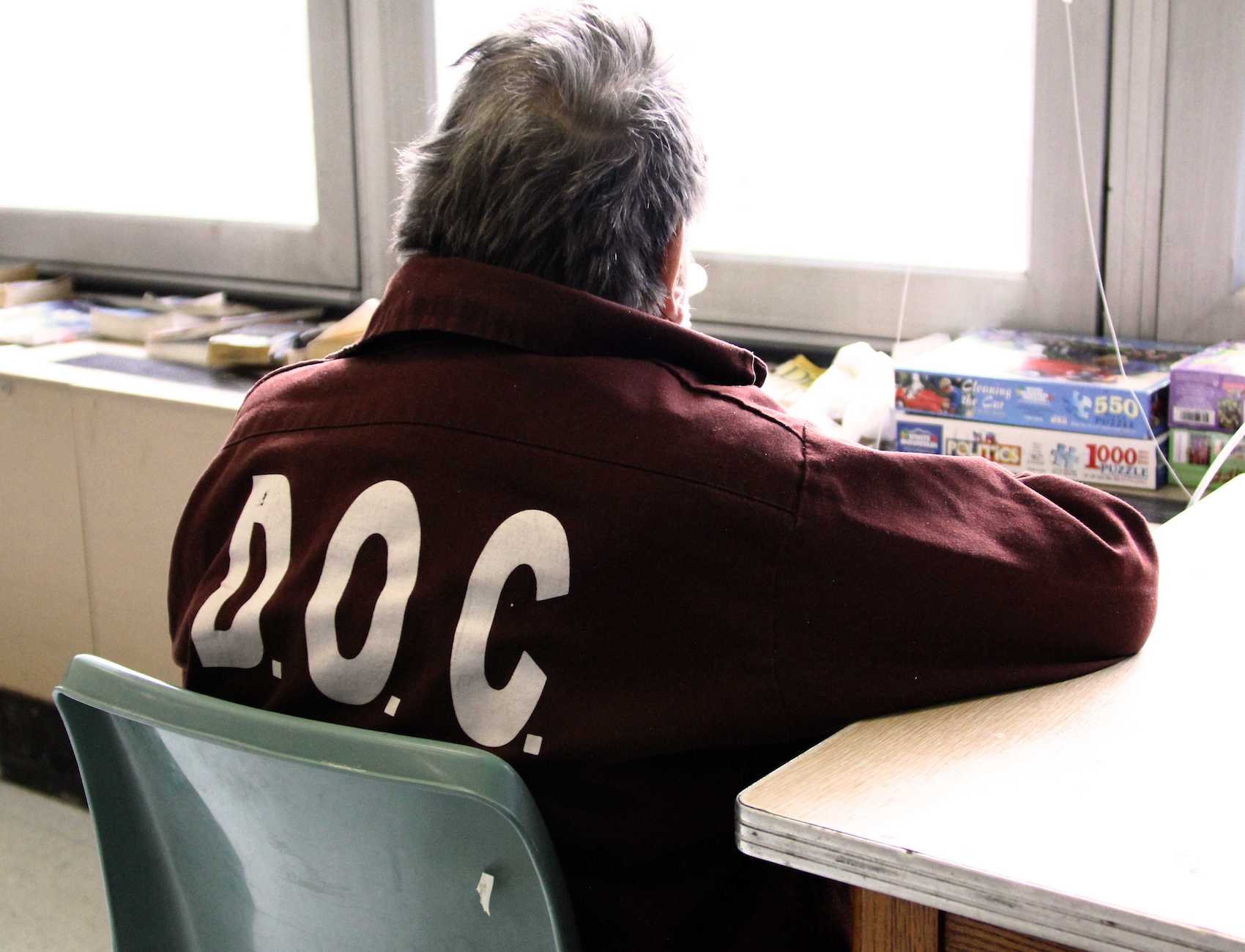Pennsylvania Has Few Options to Release Elderly Prisoners as COVID-19 Spreads
Advocates have called on Governor Tom Wolf and state Department of Corrections officials to release elderly and infirm people from state prisons. But the law is limiting how quickly they can move.

Sitting along a winding road in rural Somerset County, Pennsylvania, outside of Pittsburgh, is State Correctional Institution Laurel Highlands, a prison designed to house and care for elderly and infirm men incarcerated in the state.
The former state hospital includes a skilled nursing wing, hospice and palliative care, and a dialysis unit. It is home to some of the men most vulnerable to the current COVID-19 outbreak: As of the end of February, the prison housed more than 1,500 people, one-third of whom were listed as in infirmary care. More than half of the people in the prison were 40 years old or older, as of 2018.
But as local jails have taken steps to get the most vulnerable people released as COVID-19 spreads, prisons are moving less quickly. Pennsylvania law is particularly limiting when it comes to prison release, leaving officials scrambling to try to mitigate the harms of the virus.
“Prisons and jails, for that matter, were never designed to house this type of population,” Meghan Novisky, assistant professor of criminology at Cleveland State University, told The Appeal. “There’s a lot of suffering that is likely to happen as [COVID-19] starts spreading. I’m saying when because it inevitably will.”
One option to get the elderly and infirm out of prison is compassionate release. But in Pennsylvania, a person must be both non-ambulatory and have a terminal diagnosis before they can be considered for compassionate release.
“The requirements are so stringent that a lot of people don’t qualify,” Novisky said. Between January 2010 and June 2015, only nine people were released through the program.
“It’s not compassionate, nor do we release anybody,” said Pennsylvania Secretary of Corrections John Wetzel.
Another option for releasing people early from prison is through commutations. However, while states like Kentucky allow the governor to unilaterally provide clemency, Pennsylvania requires all requests be approved by the state Board of Pardons before the governor can act.
Wetzel said one of the best ways the state could act to quickly get vulnerable people out of prison would be to institute a furlough program. A furlough program allows for people in prison to temporarily be released from prison but remain under the supervision of the state.
Wetzel said his staff has already begun to identify people who are incarcerated in the prison system who would likely be eligible for release under a furlough program, like in Indiana, including people convicted of a non-violent offense who are elderly or immunocompromised and nearing their release date.
While the program would likely be the quickest way to get people out of prison, Wetzel said the effectiveness would depend on finding proper home plans for the people who are released.
“I would love to clear out our nursing home,” he said. “But they need to have a place to go.”
According to Wetzel, no new inmates are being brought to Laurel Highlands. Staff are also being screened for symptoms of COVID-19 and are not being rotated to different wings. However, staff are not being tested for the virus at the prison, as tests are extremely limited in the state and country.
Wetzel said his office was exploring options to create intensive care units within Laurel Highlands, although the Department of Corrections had, as of Wednesday, four ventilators to serve the more than 40,000 people in the state prisons, including roughly 12,000 people Wetzel said were considered vulnerable because of their age or health.
Similar procedures are also being used in Montgomery County, the current epicenter of the outbreak in the state, at SCI Phoenix and SCI Waymart, which has a cancer treatment center, Wetzel said.
Visitors were banned from all state prisons on March 13.
On Wednesday, advocates from the ACLU of Pennsylvania, Amistad Law Project, and the Abolitionist Law Center sent a letter to Governor Tom Wolf urging him to explore “emergency measures to release as many elderly people and as many people with comorbidities and complex medical needs from prison as quickly and safely as possible,” and calling on the Board of Probation and Parole to expedite releases.
While members of the parole board are appointed by the governor, Wolf does not directly oversee the decisions made by the board.
